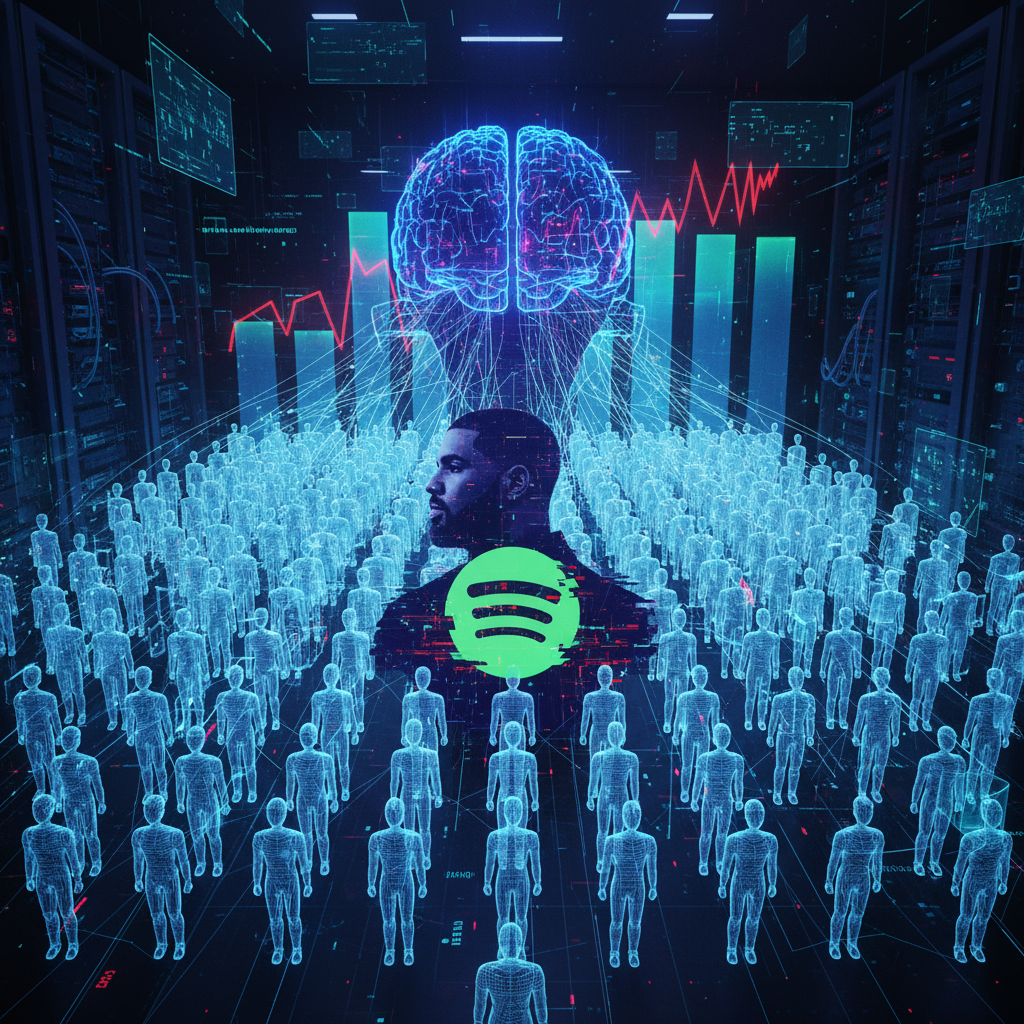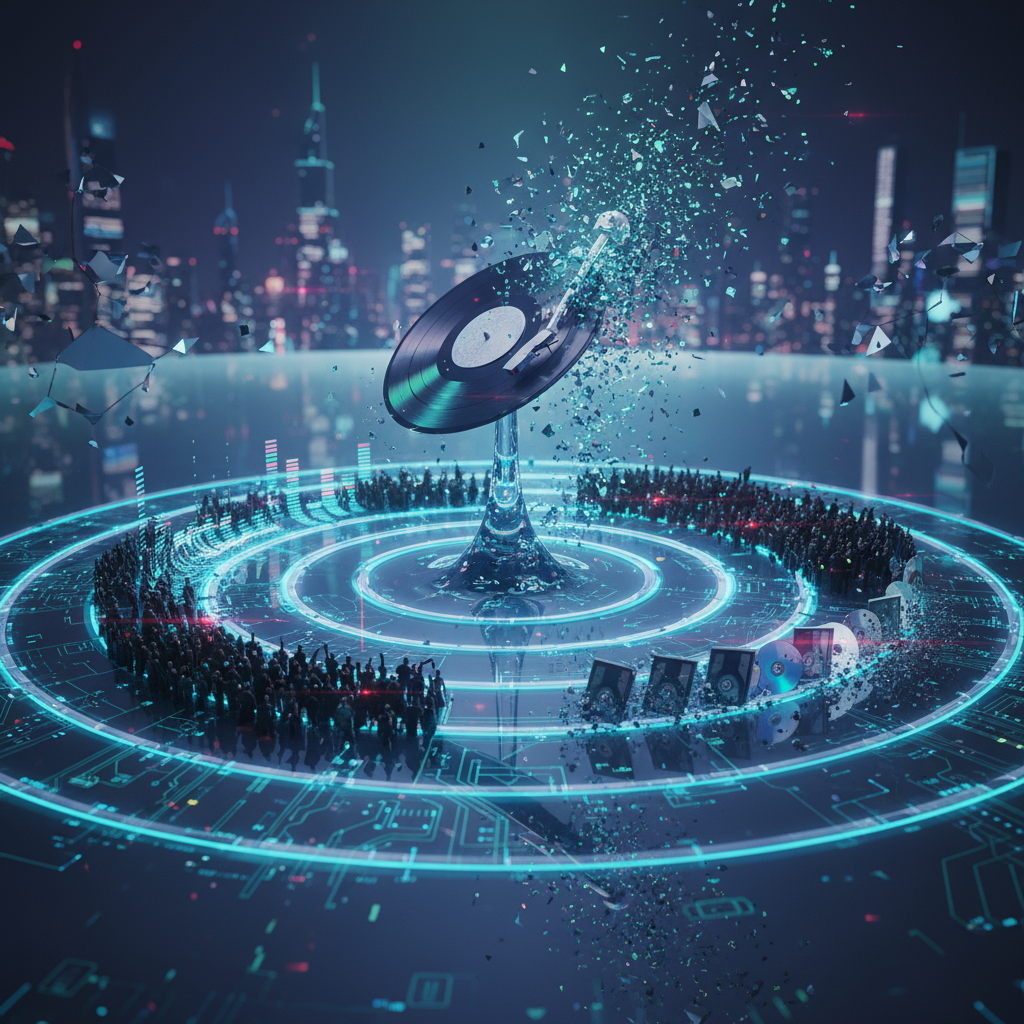Spotify Faces Music Industry Earthquake: Sued Over Alleged Billions of Fraudulent Drake Streams
The music industry is no stranger to controversy, but a recent lawsuit against Spotify is sending shockwaves through the streaming world. The allegation? That a “substantial” portion of Drake’s staggering 37 billion streams – yes, billion – were generated by bot networks, artificially inflating his numbers and potentially impacting royalty payouts to other artists. This isn’t just about one artist’s popularity; it’s about the integrity of the entire streaming ecosystem.
The Allegations: A Deep Dive into the Bot Network

The lawsuit, filed by [Hypothetical Plaintiff Name], alleges that Spotify knowingly allowed or even facilitated the artificial inflation of Drake’s stream counts. The core argument revolves around the existence of bot networks designed to repeatedly play Drake’s songs, generating streams without any genuine listener engagement. These bot networks, the lawsuit claims, contribute significantly to Drake’s overall stream numbers, distorting his actual popularity and potentially skewing royalty distributions.
The plaintiffs suggest that Spotify, aware of these bot activities, failed to take adequate measures to prevent them. Some even speculate that Spotify might have indirectly benefited from the inflated stream counts, as higher listener engagement, even if artificial, can attract advertisers and investors. The lawsuit presents the idea that if Drake’s streams are significantly inflated, then a lot of the advertising money going towards the platform is based on fraudulent data.
Essentially, the suit claims Drake’s success is potentially propped up by these fraudulent streams, giving him an unfair advantage over other artists. The potential implications are vast, suggesting a systemic flaw in Spotify’s stream counting mechanisms.
Why This Matters: The Ripple Effect on the Music Industry

The consequences of this lawsuit extend far beyond Drake’s discography. If proven true, the allegations could expose a widespread issue of fraudulent streams plaguing Spotify and potentially other streaming platforms.
Firstly, this could dramatically affect royalty payouts. Royalties are typically distributed based on a pro-rata system, where artists are paid based on their share of total streams. If Drake’s streams are artificially inflated, it means a larger slice of the royalty pie is going to him, leaving less for other artists, particularly smaller, independent musicians who rely on streaming revenue.
Secondly, it could erode trust in streaming data. Streaming numbers are increasingly used to determine an artist’s popularity, influence, and even their value in the industry. Inflated figures could lead to misinformed business decisions, such as record label investments and promotional opportunities, ultimately harming artists who aren’t benefiting from artificial streams.
Finally, it calls into question the transparency and accountability of streaming platforms. If Spotify knew about the fraudulent streams and failed to act, it raises serious questions about their commitment to fair practices and protecting the interests of artists.
Spotify’s Potential Defense and the Challenges of Proving Fraud
Spotify has yet to officially respond to the lawsuit, but it is likely they will argue against the validity of the claims. They might point to their existing measures to detect and prevent bot activity, arguing that they are constantly working to refine their algorithms and identify fraudulent streams. They might also argue that proving a substantial portion of Drake’s streams were generated by bots is an incredibly difficult task.
Proving the existence and impact of bot networks is a significant challenge. It requires detailed analysis of streaming data, identifying patterns and anomalies that suggest artificial activity. This could involve examining listening patterns, IP addresses, and account behaviors to differentiate between genuine listeners and automated bots. Forensic analysis would need to demonstrate, beyond a reasonable doubt, that a specific number of streams were definitively fraudulent.
Moreover, establishing Spotify’s knowledge and complicity in the alleged fraud will be another hurdle. The plaintiffs will need to demonstrate that Spotify was aware of the bot activity and either failed to take action or, worse, actively facilitated it. This would require uncovering internal communications, data analysis reports, or other evidence that proves Spotify’s awareness and intent.
The Future of Streaming: Transparency and Accountability
The lawsuit against Spotify highlights the urgent need for greater transparency and accountability in the streaming industry. This incident should encourage major players like Spotify, Apple Music, and Amazon Music to improve their stream counting mechanisms and implement more robust anti-fraud measures.
Furthermore, it emphasizes the importance of independent audits and industry-wide standards for verifying streaming data. A collaborative effort is needed to ensure that stream counts accurately reflect genuine listener engagement and that royalties are distributed fairly.
The outcome of this lawsuit could set a significant precedent for future cases involving fraudulent streams. It could force streaming platforms to be more proactive in detecting and preventing bot activity, ultimately creating a more equitable and transparent environment for artists. The music industry is watching closely, hoping this case will bring about meaningful change.

